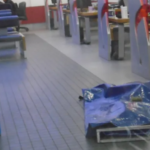30 illegal foreigners, including Ethiopians and Bangladesh nationals, have been intercepted by the BMA at the O.R. Tambo International Airport.
The Border Management Authority (BMA) recently disrupted two suspected human trafficking operations at OR Tambo International Airport.
In the first incident, officials intercepted 14 Ethiopian nationals after passenger data analysis flagged their travel patterns as suspicious. Separately, 16 Bangladeshi men were stopped when authorities discovered fraudulent visas and behavior indicative of trafficking-related irregular travel.
These incidents occurred as the BMA announced its plans to ramp up border security during the festive season. Commissioner Mike Masiapato stated that technology will be a key component of their strategy to combat illegal migration, smuggling, and the movement of narcotics, illicit goods, and stolen vehicles.
The BMA is working with neighboring countries and has established partnerships to enhance port of entry management. Masiapato warned that anyone caught breaking the law at border posts will face severe consequences. The BMA aims to ensure a crime-free border area throughout the holiday season.

Follow Us on Twitter











